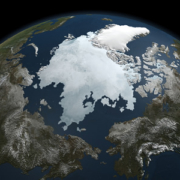I was kindly sent a copy of Lord Lawson’s book “An Appeal to Reason: A Cool Look at Global Warming”.
When I was 16, I was given a small pamphlet by the Heritage Foundation called “Our Moral Heritage” by F A Hayek which was lecture 24 of the Heritage Lectures 1983 with a splendid introduction by our very own Dr Eamonn Butler. What struck me and has stayed in my mind 26 years later is this passage that has great relevance to the current global warming debate:
Private property, of course, was never “invented” in the sense that people foresaw what its benefits would be. Its main benefit turned out to be the division of labour, which it brought about. That in turn increased the possibility of maintaining a large number of people because it generated an increase in productivity by enabling the use of a much greater variety of information than could ever be possessed by any single agent.
But even more than that, it meant that an increase in the population did not become, as Malthus predicted, a process where the increase of humanity led to decreasing returns, and therefore to a decrease of personal incomes. On the contrary, it was found that, insofar as it made possible and increase of human numbers that was due to increasing differentiation, the increase of population was not subject to the law of decreasing returns. In fact, the increase of the density of the population increasingly helped improve productivity.
Malthus’s application of the law of decreasing returns to increasing humanity was based on the assumption that human labour is uniform. But the great development made possible by property was that human labour and human capacities became highly specialised.
And so the increase of population became an increase in variety. It made possible the institution of what Adam Smith was the first to recognise as the division of labour. Smith taught (but his successors did not understand) that the division of labour was a direct function of the extent of the market. And the extent of the market, of course, is a consequence of the increase of population. The increase of the population, far from reducing productivity, and far from leading to impoverishment, is in fact that source of the increase in our productivity and the increase in our capacity to keep alive ever increasing numbers of men.
Property is man’s command over something. It allows the universal division of labour. Jesus Huerta De Soto has extended this concept in a very Hayekian manner to the universal division of knowledge. The savings of man grow the capital structure, add to productivity, and allow the planet to support more and more of us. This is a truly wonderful thing.
Today, environmental groups call for a reduction in carbon on scales that would require a gigantic decline in our population numbers: we are told we must self-sacrifice and surrender our standard of living for the general good of a much lower population. The most extreme voices would send us spinning back to the dark ages and the more moderate would see us stagnating in development.
As a primary school child in the 70’s , I was told that we were descending into a global ice age. I was shown pictures of how 10,000 years ago, the glaciers reached 70 miles north of London. I thought to myself, thank god, I will be just OK! This was of course set in the back drop of being told that in any given 3 minutes, I may have to run for cover as the Russians would nuke us! We were shown films of what a nuclear holocaust could be like. I concluded that it would be better off being evaporated in a nanosecond, becoming a shadow of vaporised dust on a wall, than to survive. In the 80’s, as a teenager, I was taught that all the oil in the world would run out by 1988! I thought to myself, “I might get one year of being able to drive in a car, and then that is it, game over”! Accordingly, I am very wary of any claims of Armageddon by scientists and politicians. In fact, I struggle to give the environmental arguments the time of day as my instinct tells me it is another gigantic scare by people grappling with only a part of the complete, complex picture of what is really going on.
Lawson embarks on a logical and unemotional inquiry into the so-called science behind global warming, and in particular the works of the Stern Review and the IPCC: the UN’s Intergovernmental Panel on Climate Change. He points out that on the worst case forecasting scenario, we will have a global warming of 3 degrees Celsius or 0.03% per year for 100 years.
I ponder how my local cathedral City of St Albans was a great wine growing centre up until the Reformation. Maybe in 2100, it might be the same again. The ebb and flow of temperatures over many centuries allows man time to adapt. As Lawson says
In any case, average world temperature is simply a statistical artefact. The actual experienced temperature varies not only between day and night and between summer and winter. It also varies enormously in different parts of the globe; and man, whose greatest quality is his adaptability, has successfully colonised most of it. Two countries at different ends of the earth, both of which are generally considered to be economic success stories, are Finland and Singapore. The average annual temperature in Helsinki is less than 5 degrees Celsius. That of Singapore is in excess of 27 degrees Celsius. If man can successfully cope with that, it is not immediately apparent why he should not be able to adapt to a change of 3 degrees Celsius when he is given a hundred years in which to do so.
The adaptive capacity of man as witnessed throughout our whole history should not be underestimated.
Concerning the unreliability of the science, I particularly love this quote from the book
In the light of the evidence it is scarcely surprising that the worst the IPCC report can come up with, so far as the polar ice sheets are concerned, is the conclusion that
“There is medium confidence that at least the partial deglaciation of the Greenland ice sheet, and possible the West Antarctic ice sheet, would occur over a period of time ranging from centuries to millennia for a global average temperature increase of 1-4 degrees Celsius.”
The idea that anything sensible can be said about the likely state of the world a thousand years ahead, still less that we can take rational policy decisions on this basis, is mind-boggling.
I could not agree more.
Lawson points out that our political masters have gone down the socialist planning route in an attempt to address the perceived problem. As a sop to capitalism, your centrally-planned ration of carbon emissions can be traded. On this point Lawson says:
For one thing, it is in no sense the “market” solution that it purports to be. It is essentially a government controlled, administrative rationing system, in which the rations can be subsequently traded. It is rather as if, instead of seeking to cut back on smoking by taxing it, we were to allocate Soviet–style production permits to the cigarette manufacturers, which they were then permitted to buy and sell among themselves. Of course, for the market-makers and other middlemen who trade in the CO 2 emissions permits, it is indeed a market, and one which they will not hear a word said against; for them it permits a lucrative and – they hope – growing business opportunity.
Nothing short of a scam.
Despite this, Lawson believes one should tread in this area with caution and he advocates a tax on carbon to encourage more conservation in our carbon consumption and thus emission, rebated back pound for pound to the people it is taken from, across the board to see how their behaviour is changed by higher energy prices.
I am not in the business of advocating any tax at all, so I can’t support Lawson on this matter.
The only solution I can see is private property rights, and as Hayek comments in the opening quote, this discovery of man has generated an immense explosion of or numbers and our well-being. I am minded to think of advocates in my old industry of fishing, where the new coalition government want to deploy rights-based solutions to the management of our fish stocks which involve some quota setting, and rights to fish this out by certain fishermen with certain boat sizes etc. But it will be no better than setting rations or taxing behaviour. What is best is the full denationalisation of the oceans.
This is of course what man has done on land. Some genius ancestor of ours, whose name is lost to history, invented a “fence”: a strange contraption kept out his marauding Neanderthal cousin who wanted to eat his crops and livestock. As the great migrations of biomass ebb and flow in our ocean currents, ocean stewardship by the fishing community themselves needs to take place. If they pay a small fortune for the rights to fish these wild biomasses, they will want to do that sustainably, year in, year out, so they generate a return of the money spent. A latter-day fence-making genius will design systems that can protect his biomass from encroachment by other hunters as we have so successfully done on land. This is the future of sustainable fishing.
What is the future of sustainable global temperature?
So far as it is a problem (and I am not convinced it is), if the carbon pumping industries and consumers of the world start causing global wealth to decline, will that not cause claims of restitution against polluters that will then enforce change? Is this not a matter of private property rights enforcement, just as a polluting chemical plant can be sued by the water authority whose river is polluted to make restitution and enforce a change in behaviour? Will not our acute sense of self interest, rather than self-sacrifice, and our belief in private property rights and enforcement thereof be the solution to any problem that may or may not exist?
Lord Lawson is a radical thinker and on the whole I fully endorse the book with only the reservation mentioned above about taxes. The Global Warming Policy Foundation continues to to great work in appealing to reason.






